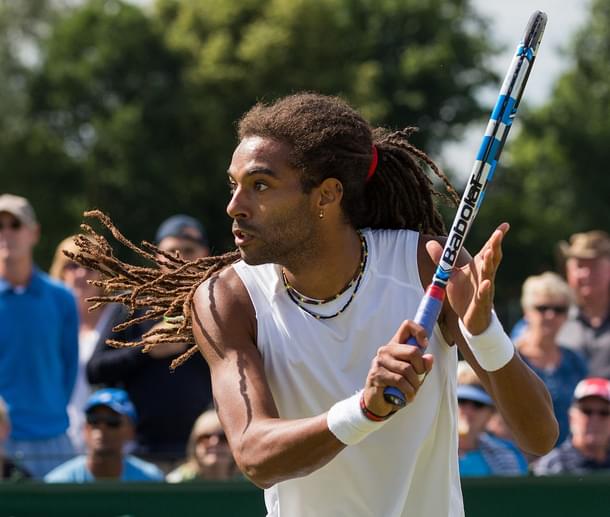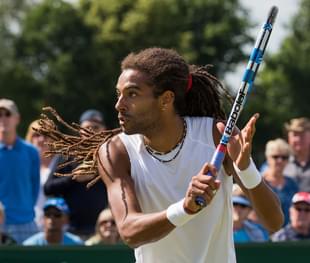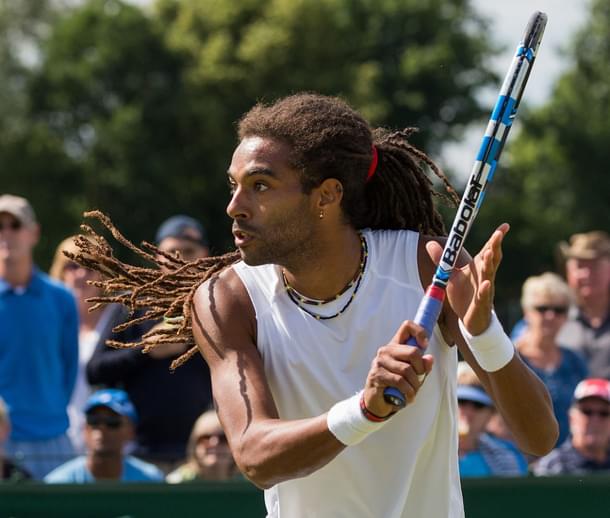Culture
Triumph Of The Underdog
Rashi Kakkar
Jul 11, 2015, 08:30 PM | Updated Feb 11, 2016, 10:22 AM IST
Save & read from anywhere!
Bookmark stories for easy access on any device or the Swarajya app.


Why does an underdog’s win make us cheer for the person? That’s because there is a Dustin Brown in each one of us. We hang in there, searching for that moment when we will beat Rafael Nadal.
Like millions of tennis fans around the world, I too was in a state of shock after watching what transpired last Thursday on the Wimbledon Centre Court. It is not every day that someone ranked 102 manages to beat a former world number 1. But that’s exactly what happened, with two-time Wimbledon champion Rafael Nadal making an early exit in round two after being outplayed by qualifier Dustin Brown.
After winning the tie, Brown, a quintessential journeyman, flaunted the tattoo of his face on his torso. While he admitted that the win was the ‘best day of my life’, tennis legend John McEnroe in his avatar of a commentator described it as one of the ‘all-time greats’ at Wimbledon.
In retrospect, Nadal’s defeat is not as surprising as it seems. A five-time finalist at the All England Club, he, in his last four appearances, has had early round exits to players who were not even ranked in the top 100. But still, the 29 year old was the favorite when he stepped on to the court against an (previously) anonymous the 30-year-old qualifier. David had beaten Goliath.
Cut to a few weeks back, and a different sport. Bangladesh beat India 2-1 in an ODI series. For most people in India, cricket is not about the skill and fortunes of the 11 men who actually play, but about the self-respect and pride – if not vindication – of an entire nation. Given what the game means in India, I found it surprising that most Indian fans weren’t as hurt with the defeat as I would have imagined them to be. A lot of fans, including me, got a “warm fuzzy feeling” seeing Bangladesh topple the mighty Indian cricket team.

Extracting joy in watching the underdog win is a universal feeling, which is not just limited to sports. J K Rowling exploited that appeal in Harry Potter, Barack Obama used it in his presidential campaign and most start- ups tend to position themselves as underdogs battling with the big boys.
We all know is that there is something charming about watching the underdog become successful but what is more fascinating is decoding the why. Why is it that most people always cheer for the underdog and seem to associate themselves with the underdog?
Maybe it is because we as humans have always fought against odds. We fought massive odds to even be conceived. The odds are always stacked against fertilization. 100 million to 300 million sperms are all competing for that one prize. Life is formed from the worst of odds and probability. At a subconscious level, we all probably know what being an underdog and then winning feels like. It is always harder to succeed when you know that the chances of doing so are very slim.
That is why Dustin Brown got so much adulation. He wasn’t just a lower ranked player but he also had to fight against several issues, right from financial to racial, to reach where he did.
Unlike his billionaire counterpart who travelled in private jets, he couldn’t even afford a hotel room. That is why he travelled in a camper van. Unlike his billionaire counterpart, he didn’t earn extra money through endorsement deals and used to string rackets for his fellow players.
In sports, the superstar is always the “immortal”, the “God” – someone who will win. We worship them, but we hardly ever feel like them. We are all “mere mortals.” Each one of us fights our own battles every day. More often than not, we feel helpless. More often than not, we want to feel like the victim. There is a battle on amongst most of us to be the greatest victim.
Because once we establish ourselves as victims, it is so much easier to become heroes. The idea of the hero is always someone who has nothing battles the toughest of odds and then gets everything in the end. Even if it is just once. That is why we celebrate the underdog’s victory. Even if it is just once.
It is highly unlikely that Dustin Brown will end up beating another top 50 player soon. It is highly unlikely we will ever hear of Dustin Brown again. But what he did with that one victory was that for that brief moment in time we rose and become a hero. He pulled apart the superstar and brought him crashing down back to Earth.
McEnroe understood the far-reaching effect Brown’s win had. “Five hundred professional tennis players are inspired to hang in for a couple of years longer because of what they have just seen there. Nothing is impossible. Brown’s level of play on this court was spectacularly high.”
A sport has always meant to be all about inspiring others. Maybe that is why we all love the triumph of the underdog. It gives us, mere mortals, the belief that, maybe, one day when life will present us the opportunity, we too will rise to the occasion and win against the odds. For that moment in time, we too will become a hero. We will become like Brown who will beat Nadal.
Rashi Kakkar is a graduate from The Shri Ram College of Commerce, New Delhi, and a Young India Fellow. Currently she works as a brand consultant and is enjoying this marriage of her two biggest passions – Strategy and Branding. A junior national level tennis player, Rashi is a complete sports buff who enjoys playing and watching any and every sport. She tweets @rashi_kakkar





